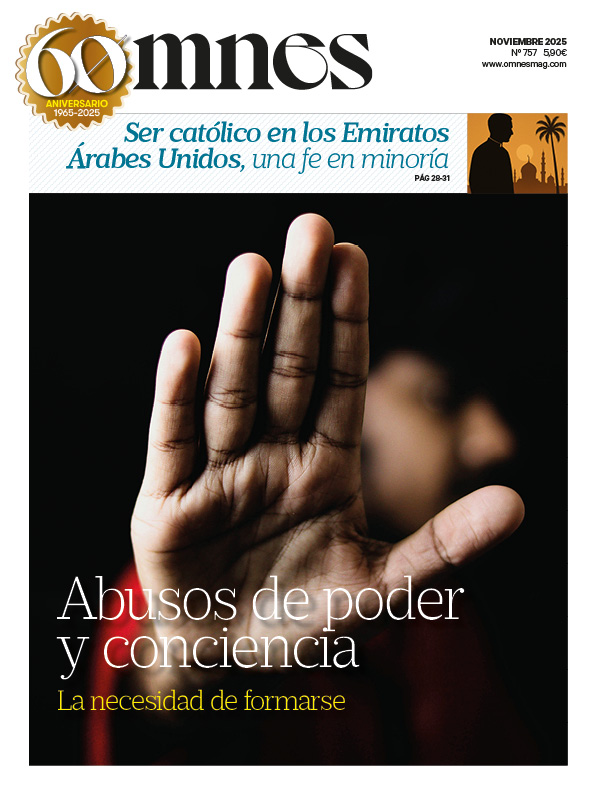In recent years we have often heard about the risks of voluntarism in the moral and spiritual education of people, especially the young. This is an important issue, because the will is the faculty with which we exercise our freedom. If education consists in teaching how to use freedom, the first thing to do is to form the will well.
The thought of William of Ockham is often pointed to as the origin of the deformation of moral life that is voluntarism. In fact, the English theologian proposed the so-called divine voluntarism which, for the purposes of this article, can be summarized as follows: something is either good or evil because God says so, and not the other way around. In this approach, reason is not capable of knowing what good it achieves by following the moral law, beyond knowing that with its will it is obeying God. However, and apart from the concrete historical development of moral theology, I believe that this association between Ockham and voluntarism obscures rather than illuminates the current meaning given to this spiritual phenomenon.
In my opinion, it would help to distinguish between "theological voluntarism" (Ockham's, on why an act is good or due), "spiritual voluntarism" (which refers to a certain way of experiencing the effort to be better) and "rationalism" or moral intellectualism (which considers that it is enough to know the good in order to do it). Rationalism is clearly opposed to theological voluntarism, since it considers that what is decisive is the capacity of human reason to know the good. The moral law is fulfilled because and why obeying God is a good thing to do is well. What is striking is that, in this scheme, "spiritual voluntarism" is closer to moral intellectualism than to Ockham's position.
The voluntarist person is rather rationalist, since it is his reason that directs - in a despotic way - the will. He is clear about what is good and does it, even if he is not attracted to that particular good. What is lacking is to develop the capacity to love the good. Therefore, the problem is not one of inflation, but of atrophy of the will. The voluntarist needs more will, but in the sense that I will explain below.
Following a venerable tradition that goes back at least as far as St. Augustine, we can distinguish two dimensions of will, which I will call the will "as motor" and the will "as heart", both of which are necessary for personal growth, but each has its own function. If we were to consider them as two extremes, we would have that if someone only developed the will as a motor, he would have a technical conception of the human being, centered on the efficiency of achieving what he proposes, without needing anyone. From the moral point of view, what he would seek is his own perfection. At the other extreme, cultivating the will as the heart would lead to understanding the person as someone incarnated, interested in making his life fruitful, aware that what is truly valuable can only be received as a free gift from others or from God. In the moral sphere, the goal would be love.
The distinction serves to explain that the problem of spiritual voluntarism consists in reducing the function of the will to being a motor, that is, to the capacity to carry out correct actions. On the other hand, the risk of understanding the will only as the heart would be to end up in a kind of spiritual quietism, as if there were no need to make an effort to achieve the good and to grow morally.
The will as heart is not to be understood in a "sentimental", changeable or superficial way, but as it is understood, for example, by Hildebrand in The heart. There he refers to the heart as the spiritual center of the person and the organ of his affectivity. Precisely what the voluntarist needs to do is to cultivate his affections, so that he not only does good because sabe that it is the right thing to do, but because it ama and identifies with him. This is possible because the good always bears someone's name: the good are actions that we perform for or with other people.
Spiritual voluntarism leads one to organize one's own life without - in the end - needing the help of others. On the other hand, those who cultivate the will as a heart face difficulties together with others, counting on their help. He trusts especially in God, as Torelló explains in He first loved us. The voluntarist is easily discouraged, because he sees the limitations of his motor. He needs to grow in hope, which is the virtue that prepares the will to fully receive the gift of God, grace.
The key to the education of the will is that the person discovers that goods (friendship, love, service or justice) fill his life and fill his heart. Certainly, this is a process in which, especially at the beginning, willpower (the motor) is very necessary. But it alone is not enough to keep on doing good, especially as time goes by. Engines get old and break down. On the other hand, if affective identification with the goods of one's own life is achieved, it will require less and less effort to remain faithful to them.
Director of the Core Curriculum Institute of the University of Navarra








